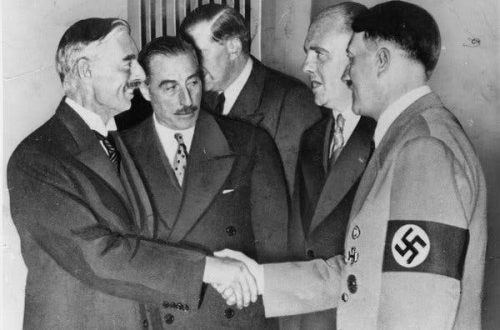This is the third and final post (the first can be seen here and the second here) in my current series of posts about the Revolutionary Communist Party (RCP). A regular reader sent in the source document correctly believing that I would have interest. It is a letter sent to 7 days, the weekly newspaper of the Communist Party of Great Britain (CPGB), by a former member of the RCP.
The letter tells a shocking story. According to the author, the Party expected members to break up with partners who were not also Party members and, if they did not, they were simply told to move to another part of the country and leave their partner behind. Many members lived in “party houses” and had to keep a strict regime on behalf of the Party with a regimented amount of days off from Party work. This work included, as the author of this letter saw it, to encourage people to throw stones at the buses of workers who broke strikes. The pressure that the Party put on members was so great that some attempted suicide, only to be told that they risked damaging the reputation of the Party.
What an evil bunch of people it seems that the RCP leadership were.
Crossing Party Lines
7 Days, March 4, 1989, p.12.
I wasn’t sure why I was doing it. Hitch hiking out of the city when I should have been standing outside a dole office with a pile of papers.
Did I still agree with what the Party said? Yes. No. I didn’t know. I couldn’t do. Because the first rule of Bolshevism was stay with the Party, serve it, build it.
But the idea of that was tearing me up. The Revolutionary Communist Party had just ‘transferred’ me from one city to the other, and I ‘had to’ leave my girlfriend behind.
Political members had expected I’d leave her when she left the party. I hadn’t. Actually I’d agreed with her that it was best to resign. She wasn’t British, and was going home to complete a degree course. Sometimes people have to do things in their lives for personal reasons, or career reasons, or just ordinary everyday reasons which meant they had to reduce—or even temporarily suspend—‘political activity’. Didn’t they?
Not if they were true revolutionaries, they didn’t!
I was being soft, liquidationist, putting personal feelings before political necessity. That’s what the leading cadres said. And I’d been doing some other funny things too. Trying to recruit people interested in green issues by admitting that communists had a lot to do, and a lot to learn about ecology. I should have been saying that only revolution could stop acid rain, and that the only political association for the colour green should be Irish republicanism.
I’d been talking to Scottish people and identifying a positive desire for control over their own lives in calls for devolution. I should have been saying that the state is the state is the state, however ‘the bosses choose to organise it.’
Worst of all, I’d been doing ‘theoretical work on China’, and was beginning to think that maybe even revolutionary geniuses like RCP leaders should have a bit of respect for Mao Zedong. After all, he had actually…
Those were the reasons they’d transferred me 300 miles south. Didn’t ask me. Didn’t tell me the possibility was being discussed. Just got someone to phone me up late one night. The bloke who’d recruited me to the party. He’d spent long hours discussing with me. Making sure I’d got it right, that I knew why only this tiny group of 80 or so had got it right, why the Labour Party, and the CP, and Militant and all the others were wrong, and were all that stood between the 1980s and the British revolution.
There was so much to do. It was such an important job. And there were useful things to do straight away—‘supporting the Irish hunger strikers’, ‘fighting racism’, selling papers and giving money.
They were a serious group. Unquestionably committed, hard working, convinced. And they knew how to draw you in, and give you a stake in things.
Learned a lot in the first period, learned until I’d got the line, and then found that anybody who disagreed, who’d got a different agenda than the one I’d inherited, was an outsider, a threat, a traitor really. People who had to be humoured sometimes, but were really obstacles to overcome.
Views like those were constantly reinforced by the way people lived in the organisation. A special group. Living together in ‘party houses’, having to book time off (20 days a year), being directed in their time by the diary filled in by the branch organiser.
Every so often the tensions got to people. There’d be arguments about favouritism in the way the diary was filled out. Somebody’s dues would appear too far behind, and there’d be long awkward silences in branch meetings whilst everyone stared at the guilty one.
Sometimes, suddenly, somebody you’d be sharing a house with for months would have disappeared. Five activities the day before. No activities ever again.
I was never in a branch where the pressure put on contacts to sell papers, end relationships, give money, led to people attempting suicide. Some people were. The leadership blamed them as individuals for a situation potentially damaging to the reputation of the party. They must have been acting clumsily.
I was acting clumsily. Hadn’t left a note for the political committee to consider. Made half a phone call from a service station on the M1, apologising for resigning instead of telling them where to stuff their revolution.
I’d be back with my girlfriend later that day. Felt good about that. There was a week before she’d be leaving. We’d have to work out what the future was ‘for us’. Felt different things about that.
Saw the irony in getting my best lift off a miner who’d scabbed in the ‘Great Strike’. Listened to his reasons, and think I tried to understand. A few months before, I might have been encouraging people to throw stones at his bus.
Did I still agree with the RCP’s politics? Was I just leaving for ‘personal reasons’? I wasn’t sure.
Mike Waite


